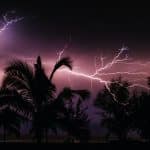I have many issues when it comes to word definitions, particularly in misthinking the meaning of a word when its definition is far from my assumption, or purposely using words in a context unfamiliar to its common associations. But what I have discovered is how a word’s definition might change from its original assignment once you immerse yourself, surround yourself, become one with the very word you are trying to understand. Throughout my life, culture is that word. In this issue, reclamation is that word.
When I searched up several different meanings of reclamation, most of them involved the idea of returning to a better state attached to recovering land and nature from human destruction. But when I think of reclamation, what first comes to mind is not only place and nature, but also time and identity. To me, sometimes reclamation means a loss and not a gain. To me, sometimes reclamation can harm more than it mends.
When I think of elders in our society who refuse new technology, desiring to remain in the past where everything is more comfortable and familiar to them, I think of it as their reclamation of a time past, but in doing so, potentially allowing the world to move on without them. When I think of those who had a hand in shaping the direction of my early life, I think of the meaning and purpose that had to be instilled in me, of the “necessary” steps of womanhood and adulthood, studenthood, and imposed motherhood. And I thought about the things I had to unlearn, to unclaim, in order to reclaim new meanings that I discover.
Reclamation could be regaining something that others have stolen from you, whether it is time, love for yourself, language, culture, agency, but it is also a diminishing as much as it is a triumph and victory, because in reclaiming a specific language and culture there could be a chance in weakening your ties to another—or at least, complicating your relationship with both. In reclaiming the self, you may be letting go of another—a past self, a mentor, a friend, family. And reclamation, I think, is not always positive in that we never know what truly the right thing is to reclaim, and what pitfalls might trip us in the process.
One thing I have been musing endlessly about is the cultural differences between my upbringing in Canada and more traditional Fuzhounese upbringing during my time in China and carried into our home in Canada by my grandmother. There are merits to both just as there are faults; there are conflicting values and beliefs, superstitions and traditions, juxtaposed ways of living: hierarchies, formalities, mannerisms. To reclaim a part of one culture might mean discarding a part of another.
Reclamation, to me, is rewriting the story of our lives, of the lives of others, of the world, and rewriting definitions—but some things are better left alone, unclaimed.
Reclamation calls to my mind the evolution of words and their uses and how it changes with time, with context, with the person using it; the way that words are used in the wrong context on purpose or by accident, adding a new layer of meaning, a complication to its original definition. I hope that with the four stories and poems the Apparition Lit Team and I have chosen together, along with the wonderful essay by Tenuka, we can breathe new life and context into familiar words and create new definitions.
After you’ve read these pieces, ask yourself, what is your definition of reclamation? You might be surprised by your own answer.
Ai Jiang is a Chinese-Canadian writer, a Nebula, Locus, Ignyte Award finalist, and an immigrant from Fujian currently residing in Toronto, Ontario. She is a member of HWA and SFWA. Her work can be found in F&SF, The Dark, Uncanny, among others. She is the recipient of Odyssey Workshop’s 2022 Fresh Voices Scholarship and the author of Linghun and I AM AI. Find her on Twitter (@AiJiang_) and online (http://aijiang.ca).
Apparition Literary Magazine is funded by our patrons, the editors, and by your kind donations. If you’d like to support us, you can follow us on Facebook or Twitter and please consider donating and/or subscribing via Patreon.
Thank you for reading
Rebecca Bennett, Amy Henry Robinson, Tacoma Tomilson, and Clarke Doty






